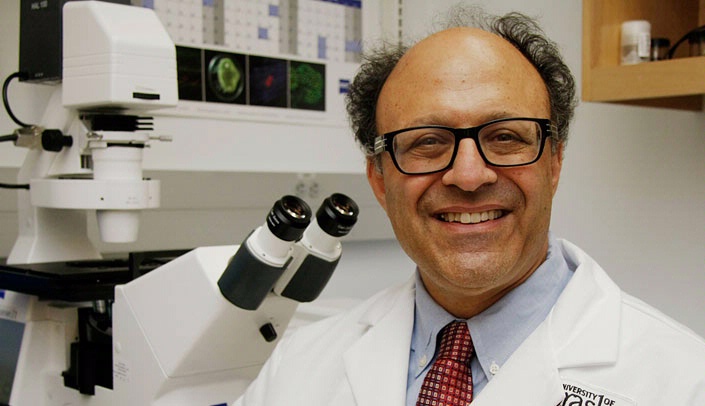Nationwide, biomedical researchers have been struggling to deal with an overall decrease in funding for their work. While we are not immune from these difficulties, in the past year College of Medicine researchers have had striking success in being awarded grants from the National Institutes of Health, the highly competitive source of most of the biomedical funding in the U.S.
As mentioned in Dr. Britigan’s message from the dean in this month’s InterCOM, we’ve seen a considerable increase in NIH funding, increasing more than $10 million in the past year.
Dollars alone do not measure the quality and quantity of research, and we continue to advance knowledge with basic discoveries and translating these to clinical practice.
To facilitate this translation, two grant awards that contributed to this increase are especially telling. One, led by Jessica Snowden, M.D., establishes the Nebraska Pediatric Clinical Trials network, supporting our clinical trials on children.
The second, led by Matthew Rizzo, M.D., establishes the Great Plains IDeA Clinical and Translational Research network, further expanding both the infrastructure and investigators performing clinical and translation research. Importantly, both awards have a goal of increasing our ability to help underserved populations.
These and other new awards are a backdrop of our investigators continuing many successful research programs. Achieving NIH funding for a project is challenging, continuing this funding speaks to even greater accomplishments and recognition of successful work and investment in future work.
Drs. Joseph Sisson, Wallace Thoreson and Howard Gendelman are all in over the 20th year of funding on grants. That is at least four renewals – quite an achievement for all.
Many factors contribute to sustaining and growing our research enterprise.
First and foremost are the people – faculty, trainees, and staff whose ideas and hard work are the primary drivers of our success. Collaborations have played an important role in our ability to address many issues; and of note, we have 10 NIH "multiple PI" grants in recognition of two or more groups contributing their unique insights and skills to the projects.
Maintaining and expanding our research infrastructure is also key in keeping us competitive for awards. The research cores, services, and programs such as bridge funding awards, all in concert with the Vice Chancellor for Research Office, enable our researchers to prosper.
While many are worried about the future plans for NIH and other funding sources, we have a strong history of accomplishments and significant growth in research in the College of Medicine.
Four years ago while commenting on decreased availability of extramural funding, I wrote that "we will emerge from these difficult times even stronger and able to continue to meet our mission and goals."
Yes we have!
